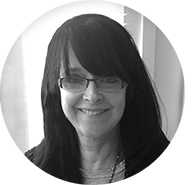Board: South Carolina Architects
Credit Hours: 2.00
Approval Number: J607NZD04
Add to Basket
Return to Course Listing
Course Description
The prevailing industry perception is that zero energy is cost prohibitive and suitable The Energy Independence and Security Act of 2007 is driving design parameters for higher levels of performance for federal buildings by 2030, and the U.S. Department of Energy (DOE) set a national goal in 2010 to achieve NZE in 50% of all commercial buildings by 2050. However, there is still not a clear plan for recognizing NZE homes while maintaining healthy and comfortable indoor environments. While incorporating energy-efficiency attributes in new and existing residential buildings will help, achieving net-zero homes will require a change in design and operation of building and equipment maintenance.
Model building codes and standards development in the United States is presently a grassroots effort, generally requiring consensus from many diverse stakeholders. Training and guidance to better inform all sectors and levels of theses stakeholders are necessary to move residential building design, construction, and operation to the NZE objective. This course outlines ways to move residential buildings towards that goal.
Course Objectives
Upon successful completion participants will be able to:
- identify the key characteristics of future NZE homes and the residential building community
- explain the challenges and barriers that impede the design, construction, and purchasing of NZE homes
- recognize the potential concepts that could be included in a future guidance document for the residential building community to aid in the design and construction of NZE homes
- implement consistent evaluation and valuation processes among the building community
Instructor Bio
 Bonnie Prinse
Bonnie Prinse
Ms. Prinse holds a BS Degree in Environmental Studies from Eckerd College and has pursued master degree studies in Aquatic Zoology at the University of South Florida. She has written scientific portions of impact statements for wetland/upland land delineation, endangered species studies, and water quality testing while employed with a civil engineering and architectural firm in Tampa, FL. Her experience in environmental studies and new construction lend itself to documentary film making, particularly environmental stories that have taken her to the Amazon in Peru and to Costa Rica. Most recently her involvement with earthen construction projects led to a video production showcasing the benefits of building “green.”


